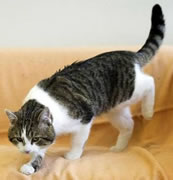According to an article I came across in the Daily Telegraph today, the best / most useful languages to study, for those in the UK, are:
1. German
2. French
3. Spanish
4. Mandarin
5. Polish
6. Arabic
7. Cantonese
8. Russian
9. Japanese
10. Portuguese
The reasons why each language is useful vary quite a bit. For example Brazil is the sixth largest economy in the world and will be hosting the next (football) World Cup and Summer Olympics; apparently Russia is the UK’s fastest-growing major export market; and Poland is the largest consumer market in the EU. Languages valued by UK employers includes German, French, Spanish, Polish and Mandarin.
If a language is useful or in demand by employers, that’s quite a good reason to study it, but if you that’s your only reason for choosing a particular language, studying it might seem like hard work. If you also have an interest in the language itself, the culture of those who speak and/or the places where it’s spoken, you’re more likely to enjoy your studies and became proficient in the language.
Have you studied any languages solely because you thought they might be useful?
One of the comments on the article suggest that it is better to study a vocational subject such as science, medicine or law and to study a language as a secondary subject, rather than just focusing on a langauge. Another comment states that a university in a language or languages isn’t particular useful if you don’t have other skills.

